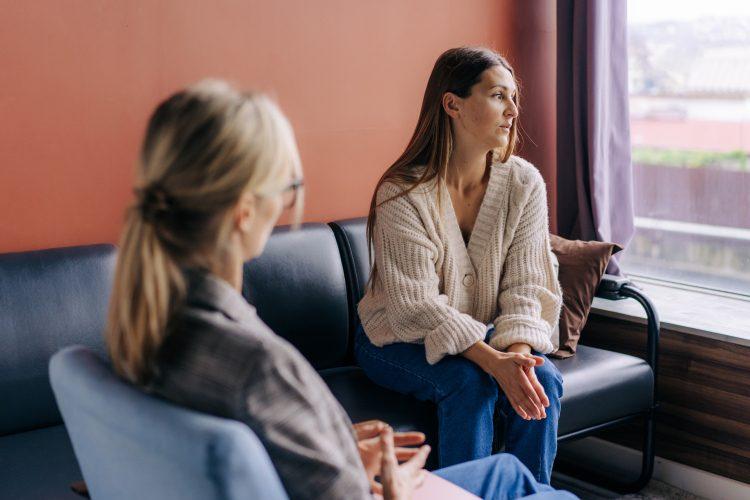Deconstructing the language to work with trauma is the first step in understanding this critical situation. Also, removing adjectives from people is vital because they could do more damage.
“Individuals are not traumatized; they deal with trauma.”

Language
Using the appropriate language creates a space of respect and dignity. It holds the individual’s wisdom to heal and brings hope to work with the impact that specific experiences had on someone.

Experiences
Human life is composed of adverse experiences that can be shaped by virtue of belonging to a specific social group, family, or subset of a group. Some come from the rage of nature, such as natural disasters, while others are from the way our interactions and attachment styles with our primary caregivers. Typically, the sum of these experiences shapes our present interactions and relationships, life satisfaction, and accomplishments.

Book An Appointment
Damage To Individual
Burstow described trauma in her publication “Toward a Radical Understanding of Trauma and Trauma Work” as a concrete physical, cognitive, affective, and spiritual response by individuals and communities to events and situations that are purposefully traumatizing. This is the perfect description of how an adverse life experience can cause damage to the individual in every aspect of their life, driving them to stagnation and crossroads.
It is essential to highlight that each person who experiences trauma reacts in a unique way. Moreover, the impact of trauma throughout life on two individuals who experience the same event can be very different.
Trauma is not a disorder but a natural reaction to a kind of wound. Trauma occurs in layers, and each layer affects every other layer until the body, the mind, and the spirit decide to exteriorize what has remained stuck inside.
Some characteristics of the events that cause trauma are:
- Childhood exposure to trauma.
- Events causing distress, profound change or disruption in any area of life.
- Events that cause boundary rupture.
- Events that make one feel powerless or where control has been lost.
- Frequent exposure to adverse experiences.
- Having a close relationship with someone involved.
- Incidents where someone fears for their own life or safety.
- Lack of support and coping resources during the experience.
- Shocking or unexpected events.
- Witnessed others in danger or unsafe.
Reactions To Trauma
- Aggression
- Chronic unexplained pain or diseases.
- Excessive worry, helplessness, hopelessness
- Feelings of guilt, self-blame
- Feelings of shame
- Loss of cues of danger
- Loss of intimacy
- Loss of physical connection to the body
- Loss of self-worth
- Loss of sense of self: Not knowing who we are, what we want, no direction.
- Loss of trust
- Mental health issues: Depression, anxiety, negative self-image, dissociation, PTSD, sleep disorders, eating disorders, suicidality
- Poor self-regulation
- Re-experiencing symptoms
- Social withdrawal, feelings of disconnection or numb
- Substance abuse
How To Deal With Trauma?
- Lean on the people you love and trust: Breaking from isolation and withdrawal can be difficult. However, seeking friends and family members for support will create a feeling of being seen, heard and loved.
- Play with breathing exercises and mindfulness techniques: Inhale for four counts, hold for two, exhale for four, hold for two and repeat the cycle. Follow your fingers with the opposite hand back and forth for 3 minutes.
- People feel wounded because they have been wounded: Validate your experience. Acknowledge that your experience is real, important and hurting.
- Connect with your body: Find some exercises or sports you enjoy, make body movements, dancing, yoga, and joint movements. Feel your emotions and sensations, and accept them as they are. Ask your body, “what could make you feel better now?”. Hug a plush toy, sleep with a weighted blanket, touch the ground barefoot, and connect with nature. Involve the senses: see, hear, touch, taste, smell.
- Practice gratefulness: Throughout the day, take a few conscious breaks and think about the things you are grateful for. Journaling at night can help reduce anxiety and lead to better sleep outcomes.
- Don’t compare yourself to others: Every experience is different, and every system responds differently. Your experience is unique and deserves self-care and compassion.
- Laugh: Seek people, movies, or spaces where you can laugh. Laughter strengthens your immune system, elevates mood, reduces pain, promotes hope and connection with others.
- Seek professional trauma therapy: Recovering from trauma takes time, patience, and love. It can be confusing, scary, and might be a roller coaster that could be supported and less re-traumatized, accompanied by a professional specialized in trauma work.
Don’t hesitate to reach out to Ammirati Counseling to ask and inquire about support services that you can receive to help with overcoming feelings of depression, loneliness, stress or anxiety.
847.217.9381
Book An Appointment

